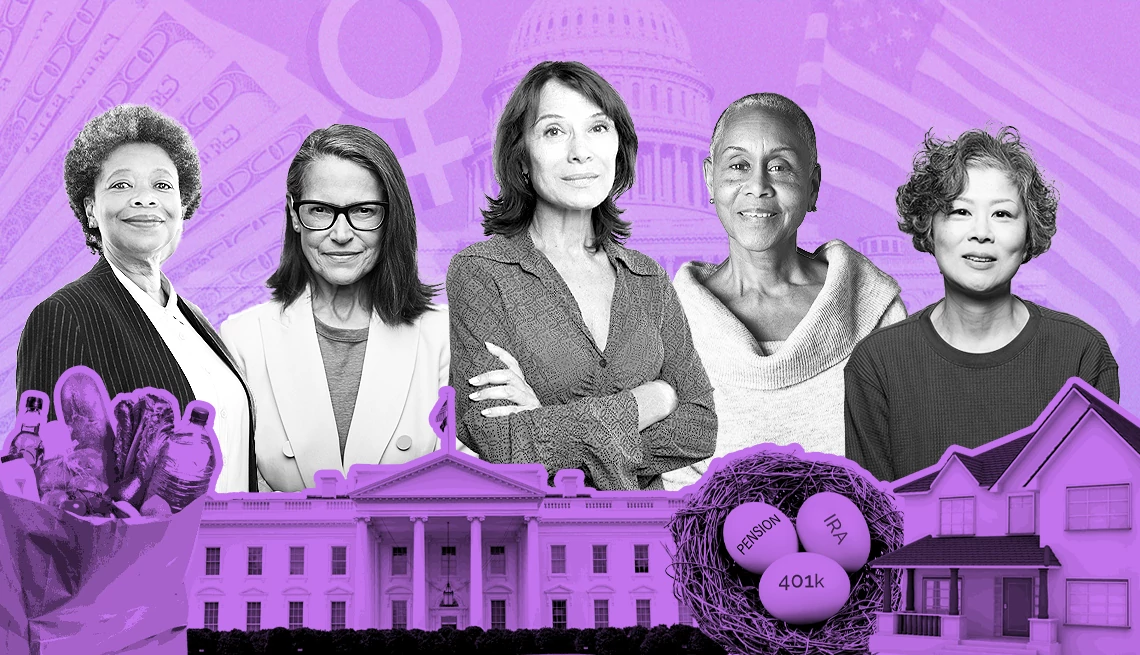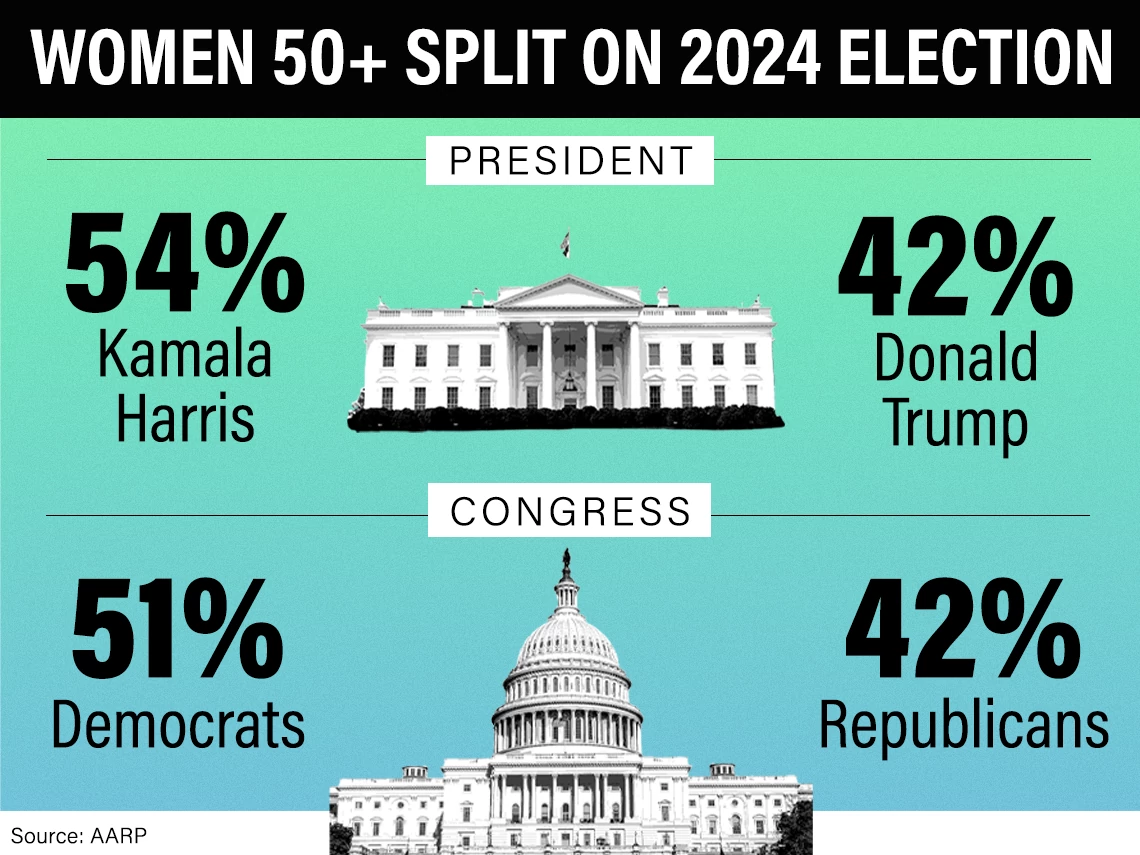AARP Hearing Center


Women voters 50-plus support Democratic Vice President Kamala Harris over Republican former President Donald Trump by a 12-percentage-point margin, largely because of how these voters rate the candidates on pocketbook and retirement issues, an exclusive AARP poll released Friday found.
Older women are poised to play a pivotal role in the outcome of November’s presidential election, putting their support behind the candidate they trust more to handle rising costs and protect Social Security and Medicare, according to the AARP “She’s the Difference” poll.
Fifty-four percent of older women support Harris, compared with 42 percent for Trump. Among voters 18 and older, 49 percent support Harris compared with 46 percent for Trump, according to the poll, which focuses on the opinions of women voters 50-plus.
The data shows a shift toward the Democratic candidate in recent months. A survey in January showed that women 50-plus supported Democratic President Joe Biden over Trump by just 3 percentage points — a margin that has widened an additional 9 points in this recent poll. In August, Harris became the Democratic nominee after Biden announced he was ending his reelection campaign.
“Older women are … a big group that is very motivated to vote,” says Nancy LeaMond, AARP executive vice president and chief advocacy and engagement officer. “Our polling over the years has shown them to be a key swing voting bloc.”
The AARP “She’s the Difference” poll surveyed 2,045 voters nationwide, including 1,353 women 50-plus, and was conducted by the bipartisan team of Republican strategist Kristen Soltis Anderson and Democratic consultant Margie Omero. The poll took place from Aug. 27–Sept. 2, after the political conventions but before the presidential debate in Philadelphia.


The poll also found that women 50-plus favor Democrats running for Congress — though more narrowly — with 51 percent saying they would vote for a Democratic contender and 42 percent opting for a Republican. Both chambers of Congress are closely divided, and one or both could flip to control by the other party.
“It really validates our view that this is a key swing group,” Soltis Anderson says.



































































More From AARP
Meet Election Poll Workers Showing Up Year After Year
Civic responsibility, social connections and even pay are prime motivatorsAARP Election Polls: How Candidates Are Faring Across the U.S.
Find exclusive data on the 2024 presidential race and issues that matterHow to Register and Vote in the 2024 General Election
State-by-state guide to everything you need to knowRecommended for You